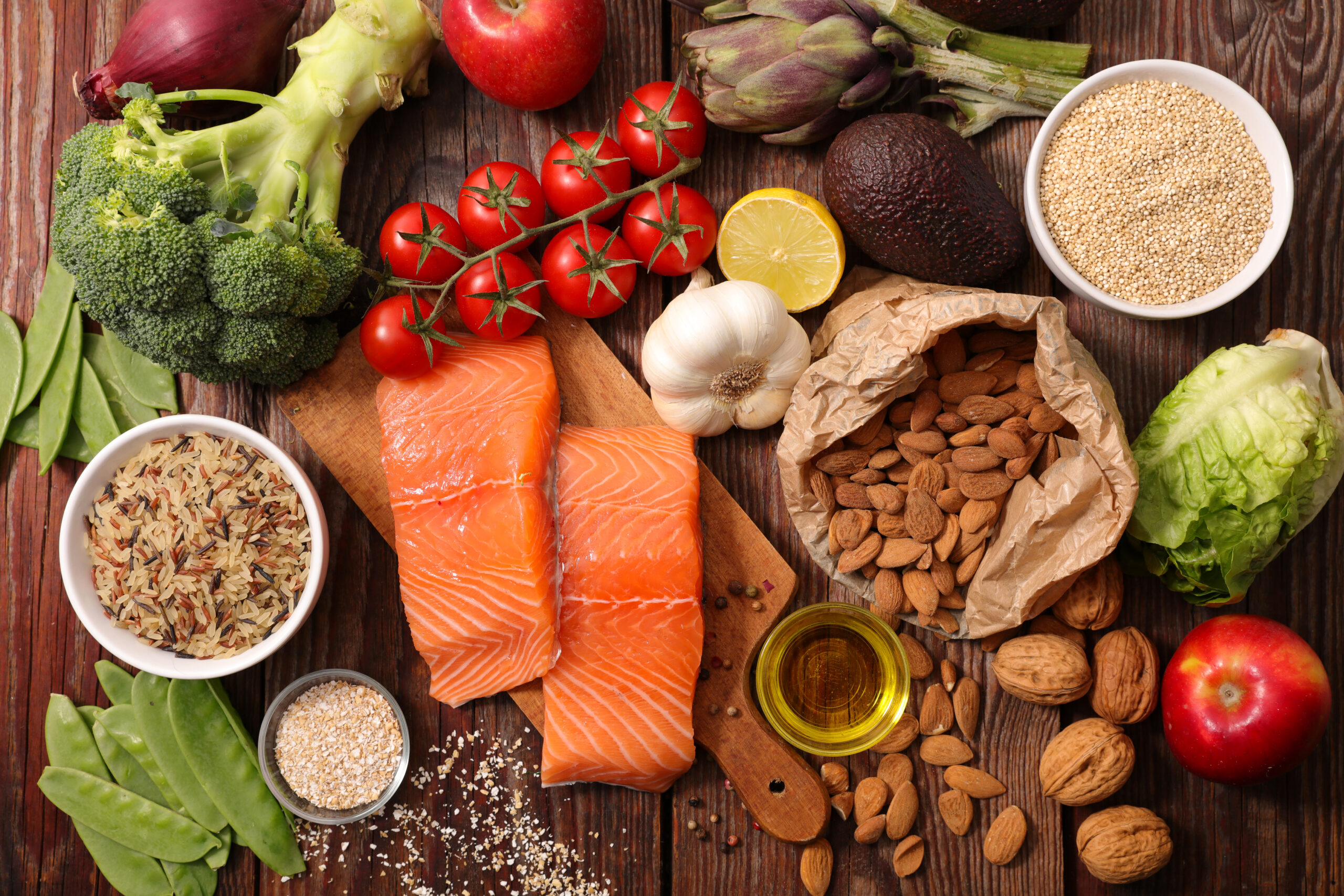Foods that Help You Lower Your Cholesterol
Foods that help lower cholesterol play a crucial role in maintaining heart health and overall well-being. Cholesterol, a waxy substance found in your blood, is essential for building healthy cells. However, high levels of cholesterol can increase the risk of heart disease. This is where diet becomes important, as certain foods can help reduce cholesterol levels.
Oats are a great starting point. A simple change like starting your day with a bowl of oatmeal or oat-based cereal can make a significant difference. Oats contain a type of soluble fiber known as beta-glucan. This fiber helps reduce the absorption of cholesterol into your bloodstream. Including oats in your diet can lower LDL (low-density lipoprotein) or “bad” cholesterol, which is a significant contributor to heart disease.
Another powerful food in the fight against high cholesterol is fish, particularly fatty fish like salmon, mackerel, and sardines. These fish are rich in omega-3 fatty acids, known for their heart-health benefits. Omega-3s help reduce triglycerides in the bloodstream and also slow down the growth rate of atherosclerotic plaque, which can clog arteries. Incorporating fish into your diet a couple of times a week can be beneficial, especially when it replaces sources of saturated fats, like red meat.
Nuts, especially almonds, walnuts, and pistachios, are also beneficial for lowering cholesterol. Nuts contain monounsaturated fats, which are heart-healthy. They also have fiber, which can help lower your LDL cholesterol. Eating a handful of nuts every day can have a positive effect on your heart health. However, nuts are high in calories, so it’s important to eat them in moderation.
Vegetables are an integral part of a cholesterol-lowering diet. They’re high in soluble fiber, which helps lower cholesterol levels. Dark leafy greens, like spinach and kale, contain lutein and other carotenoids, which are associated with a reduced risk of heart disease. Vegetables also have a low calorie-density, meaning you can eat large servings without consuming too many calories, helping in weight management, which is crucial for maintaining healthy cholesterol levels.
Beans are another excellent source of soluble fiber. They also take a while for the body to digest, meaning you feel full for longer after a meal. This is beneficial for weight management. Beans are versatile and can be included in a variety of dishes, making them an easy addition to your diet.
Avocados are a nutrient-dense fruit that can help lower LDL cholesterol. They’re a rich source of monounsaturated fats and fiber, both of which are known for their heart health benefits. Including avocados in your diet can lead to an improvement in your overall cholesterol profile.
Whole grains, like brown rice, barley, and whole wheat, contain more soluble fiber than refined grains. Including more whole grains in your diet can help lower total cholesterol and LDL cholesterol.
Fruits, particularly those high in fiber like apples, grapes, strawberries, and citrus fruits, can also contribute to cholesterol reduction. These fruits are rich in pectin, a type of soluble fiber that lowers LDL cholesterol.
Soy foods, such as tofu and soy milk, can also help lower LDL cholesterol. Studies have shown that consuming soy protein in place of animal protein can lead to a modest reduction in cholesterol levels.
Lastly, dark chocolate and cocoa can also play a role in lowering cholesterol. They contain flavonoids, antioxidants that help lower LDL levels. However, it’s important to choose dark chocolate with a high percentage of cocoa and consume it in moderation due to its high calorie and sugar content.
In conclusion, incorporating a variety of these cholesterol-lowering foods into your diet can significantly impact your overall heart health. It’s also important to remember that lifestyle changes, including regular exercise, not smoking, and maintaining a healthy weight, work in conjunction with a healthy diet to lower cholesterol levels. By making these dietary changes, you can reduce your risk of heart disease and improve your overall health.
